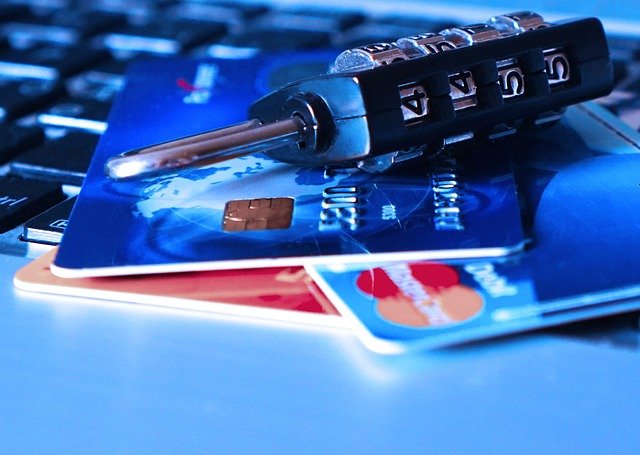Remote Healthcare Data Entry: Skills, Tools, and Workflow Essentials in 2025
Remote healthcare data entry has become an important support function as medical facilities rely increasingly on accurate digital record management. This field involves entering, updating, and organizing medical information while maintaining strict data integrity standards. Workflows often blend administrative accuracy with knowledge of basic health terminology and secure digital systems. This guide outlines the core skills, common tools, and general practices associated with remote data entry roles in healthcare environments.

The healthcare industry’s digital transformation has created numerous opportunities for remote data entry professionals. Medical facilities, insurance companies, and healthcare service providers increasingly rely on remote workers to manage their information systems efficiently.
Understanding Remote Healthcare Data Entry
Remote healthcare data entry involves processing medical information through secure digital platforms from off-site locations. Professionals in this field handle patient records, insurance claims, billing information, and clinical documentation. The work requires accessing healthcare management systems through encrypted connections while maintaining strict confidentiality protocols. Remote positions often involve full-time or part-time schedules with flexible hours, depending on the employer’s operational needs.
Data entry specialists work with various medical documents including patient intake forms, diagnostic reports, treatment plans, and discharge summaries. The digitization process requires careful attention to detail as medical information directly impacts patient care and billing accuracy. Remote workers must understand medical terminology, coding systems, and regulatory requirements that govern healthcare information management.
Core Responsibilities and Workflow Structure
Healthcare data entry workflows typically follow structured processes designed to ensure accuracy and compliance. Daily responsibilities include reviewing source documents, entering information into designated systems, and performing quality checks on completed entries. Workers often process specific types of records such as laboratory results, prescription data, or patient demographics depending on their assigned role.
The workflow usually begins with document review and verification, followed by systematic data input using standardized formats. Many positions require cross-referencing information across multiple systems to ensure consistency. Remote workers must maintain detailed logs of their activities and report any discrepancies or issues to supervisors promptly.
Quality assurance represents a critical component of the workflow structure. Data entry specialists perform self-audits and participate in regular accuracy assessments. The healthcare industry demands extremely high precision levels, often requiring 98% accuracy or higher for sustained employment.
Essential Skills for Accuracy and Compliance
Successful remote healthcare data entry requires a combination of technical and soft skills. Typing proficiency stands as a fundamental requirement, with many employers expecting speeds of 40-60 words per minute with high accuracy. Medical terminology knowledge helps professionals understand the context and meaning of the information they process.
Attention to detail becomes paramount when handling sensitive medical information. Small errors can have significant consequences for patient care and legal compliance. Remote workers must develop strong concentration abilities to maintain focus during repetitive tasks while working independently.
Compliance knowledge encompasses understanding HIPAA regulations, data security protocols, and industry-specific requirements. Remote workers must complete regular training on privacy protection, secure data handling, and breach prevention procedures. Communication skills help professionals collaborate effectively with supervisors and healthcare teams despite physical distance.
Tools and Systems Commonly Used
Remote healthcare data entry relies on specialized software platforms and security tools. Electronic Health Record (EHR) systems like Epic, Cerner, and Allscripts serve as primary work environments for many professionals. These platforms require specific training and certification for effective use.
Virtual Private Networks (VPNs) and secure remote access tools enable safe connections to healthcare systems from home offices. Multi-factor authentication, encrypted keyboards, and secure file transfer protocols protect sensitive information during transmission. Many employers provide dedicated equipment including computers, monitors, and security devices to ensure compliance standards.
Productivity tools such as text expanders, dual monitor setups, and ergonomic equipment help remote workers maintain efficiency and comfort during extended work sessions. Quality assurance software tracks accuracy metrics and identifies areas for improvement in real-time.
| System Type | Common Providers | Key Features |
|---|---|---|
| Electronic Health Records | Epic, Cerner, Allscripts | Patient data management, integrated workflows |
| Practice Management | athenahealth, eClinicalWorks | Scheduling, billing, administrative functions |
| Security Solutions | Citrix, VMware, Microsoft | Remote access, data encryption, compliance monitoring |
| Quality Assurance | DataSnipper, MindBridge | Accuracy tracking, error detection, performance metrics |
Remote healthcare data entry continues evolving with technological advances and changing industry needs. Artificial intelligence and automation tools increasingly assist with routine tasks while human oversight remains essential for complex medical information processing. The field offers opportunities for career advancement into supervisory roles, specialized coding positions, or healthcare information management careers.
Professionals considering this career path should focus on developing strong foundational skills, obtaining relevant certifications, and staying current with industry regulations. The combination of healthcare knowledge, technical proficiency, and attention to detail creates a valuable skill set in the expanding remote work landscape.




